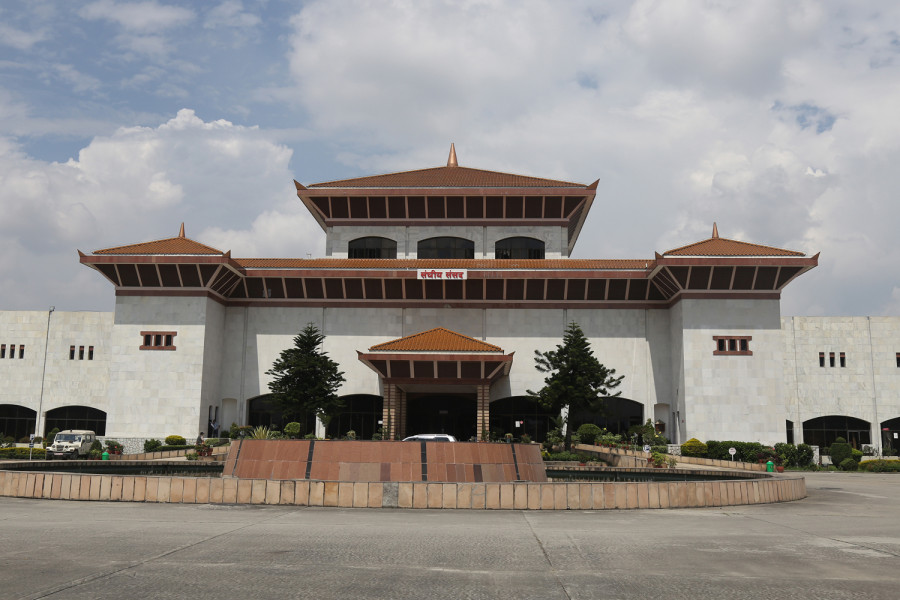National
Government tables bill allowing intelligence agencies to intercept personal conversation
Rights defenders and main opposition object to the bill, saying it infringes upon people’s right to privacy and individual freedom.
Binod Ghimire
Despite criticism over attempts to shrink civic space and media and individual freedom, the KP Sharma Oli administration has drafted a bill allowing intelligence agencies to surveil citizens, raising concerns among rights defenders and civil society members.
The Nepal Special Service Bill, registered at the National Assembly, which has been distributed to members of Parliament for study, authorises intelligence departments to intercept “the conversation of the suspects”.
The bill will be tabled in the winter session of the federal parliament that is set to commence from Friday.
In its preamble, the bill says it is necessary to control acts of secession, espionage, sabotage and subversion and protect national sovereignty, national integrity and communal harmony.
Clause 10 of the bill states that audio or audiovisual conversation at the individual or institutional level that are suspicious can be kept under surveillance, monitored or intercepted.
Civil society members and human rights defenders are particularly against the provisions which they say could open the door for the government to infringe upon the privacy of the people directly.
Kapil Shrestha, a former member of the National Human Rights Commission, said the bill is yet another attempt of the government to curtail individual freedom, right to expression and privacy.
“I am surprised [that] the government hasn’t learnt from huge public outcry in the recent past,” Shrestha told the Post. “The provision of the bill is insulting, debatable and provocative, and holds huge potential to curtail civil liberty.”
According to Shrestha, the bill is being brought on with malicious intention, as if to show that the country is under high threat and under an emergency.
The bills on Media Council and Information Technology introduced by the government earlier this year, too, have faced public criticism for the provisions that rights activists say are designed to curtail freedom of expression.
Human rights lawyers say the bill gives ample room to doubt the government’s intention, as the new bill was drafted without proper consultations with the concerned parties. “I agree the government needs a strong intelligence service, but not at the cost of public liberty,” Raju Chapagain, a human rights lawyer affiliated with Amnesty International Nepal, told the Post. “There should be a proper balance between individual liberty and the government's effort to safeguard national sovereignty and integrity.”
Chapagain added there has been a trend worldwide to target digital communication in the name of gathering information for intelligence. This is why the United Nations General Assembly in 2013 asked its member states to thoroughly review their digital communication and other policies to ensure that they comply with the principle of human rights, he said.
The bill registered by Prime Minister KP Sharma Oli envisions to have a specialised office for the intelligence under National Investigation Department and form a nine-member committee led by the prime minister to draft the necessary policy, coordinate and provide the needed guidance.
The main opposition Nepali Congress also has objected to the bill, saying it is a blatant attack on the right to freedom and right to privacy ensured by the Constitution, as it would consequently end individual freedom.
“The anti-constitutional bill is not acceptable to our party. We warn the government to not present such a bill in the federal parliament,” said Balkrisna Khand, the party’s chief whip, in a statement.
Prakash Pantha, a National Assembly member of the Congress party, has registered a notice of protest against the bill in Parliament, stating that the bill is against the spirit of the constitution and international principle of freedom.




 14.12°C Kathmandu
14.12°C Kathmandu















